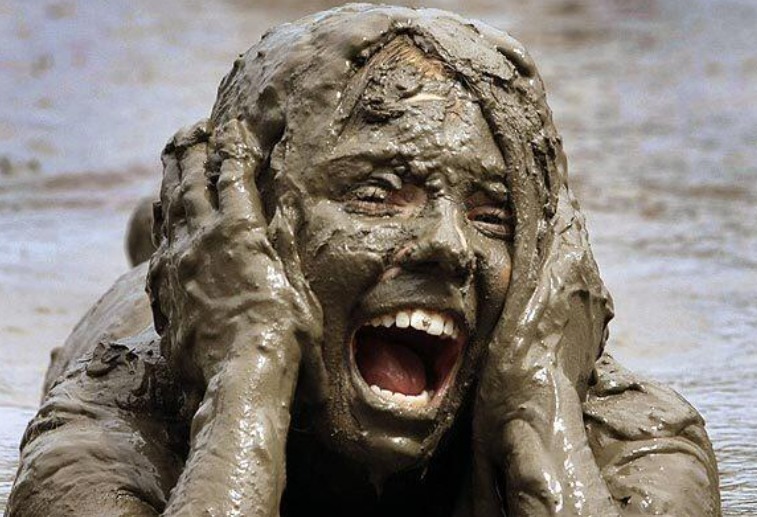
Stuck Real Good in Place Called Mud
About five miles down the road was a quiet railroad trail that followed the Mississippi River. Mason hadn’t gone down to the river in years. After a few minutes on the trail, he dismounted his bicycle and went closer to the bank to admire the view. He looked down at his shoes to find they had been dipped up to the laces in Mississippi mud and was immediately reminded why he didn’t come down here more often. He found a tree trunk to rest on and gazed out over the murky rushing waters.
This kind of place was Jubilee’s natural habitat, he suddenly remembered. For their first date, he made reservations at Zanzibar Blue, a restaurant and jazz bar in Philadelphia. But she wasn’t up for anything “high-brow”— which to her was any place where a meal cost significantly more than the ingredients to cook the same meal in her own kitchen. She lived about an hour north of the city and talked him into a campfire meal along the Tohickon Creek, near her home. In time this became their go-to Saturday afternoon date.
He could still picture the way she would descend the steep creek bank with ease after each meal. She would hang her shoes on one of the many river birches, which he assumed had also congregated to watch her great emancipation. Something about the swollen creek released her every time. The mud cleansed her in a way that soap and therapy never could. She would coat her entire body with the heavy clay mud until she resembled some sort of wild mountain sherpa. She would then laugh hysterically—in a fashion that, if he had not known it was out of pure joy, would have scared the daylights out of him.
She was this beautiful monstrosity. It was always only a matter of time before she would canvas him with the mahogany mud. Later they would arise from the creek bank and wander back into civilization, only to be greeted by high-beam eyeballs, wide mouths and pharisaical fingers. Swamp monsters don't integrate well into society, they found. The townsfolk were square pegs that fit nicely into society’s square holes. Jubilee was not a square peg. Nor was she a round peg. She was some sort of polygonal anomaly. A factory defect item some would say, but the kind that ends up being worth a fortune as a collectible years later. And the kind too precious to ever consider selling.
As Mason sat there on the bank of the Mississippi, meticulously detailing his shoes with a napkin and pen cap, his square-peggedness was on full display. But it was something he embraced at this point in his life. Because, unless you’re a Howard Hughes or Salvador Dali type, being the square peg is the safer route to success— a sound philosophy he learned at the foot of his father, who relied on hard work and extra-long hours to build the ladder he was climbing. “Son, embrace the Protestant work ethic” the agnostic old man would often say, which made young Mason wonder if the Catholics were the lazy kind of believer or just climbing a different ladder.
As he exorcised the last evidence of Mississippi mud from his shoes, he wondered what Jubilee would think of him now.
0 Comments Add a Comment?